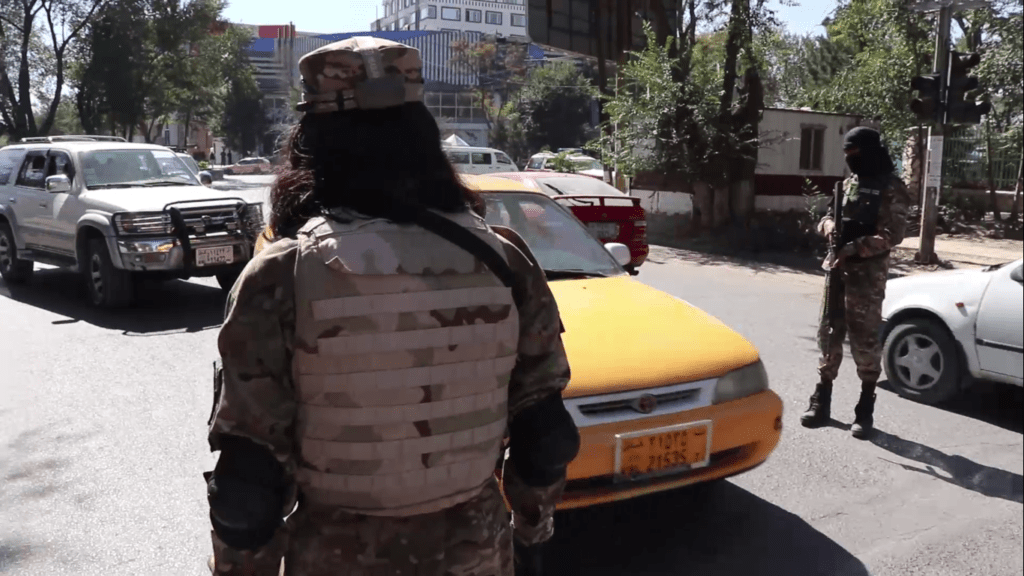KABUL (Pajhwok): Residents of Kabul complain that gunmen linked to the government have lately been checking their mobile phones, violating their privacy.
Concerned at the unwarranted checks, they say the practice amounts to trampling on human rights and respect for their privacy.
Several individuals from different parts of the capital told Pajhwok Afghan News the armed men had informed them that their smart phones would be checked.
But a senior government official said that security forces did not have the right to peep into people’s mobile phones or harass citizens.
But in some cases, the official believed, intelligence agents might have done so on the basis of tip-offs. He promised an end to the practice.
Don’t intrude on our privacy: Citizens
Shakib, belonging to the Baharistan locality of Kabul and a student at a private higher education institute, alleged: “A few days ago, I was going home in a vehicle.”
“The security forces stopped the car in Baharistan and said that my phone will be checked,” he said, slamming the action as a violation of human rights and Islamic laws.
“They thoroughly searched my mobile phone but found nothing objectionable. Then they asked me to open the photo gallery. They saw the pictures of my family.”
Shakib recalled: “They asked me whose photos these are. I said they are my family members. They harassed me a lot and tried to keep my mobile phone. But after deleting the photos, they returned my phone.”
He described phones as a private device and no law allowed anyone to look at people’s confidential.
Shakib insisted mobile phone surveillance without reason ran counter to Islamic principles and human rights. He urged the authorities to stop the practice.
A resident of Dasht-i-Barchi area, who did not want to be named, also excoriated frisks. He particularly denounced searching the youth and said he had stopped carrying his cell phone.
“One and half weeks ago, I was passing the Anchi checkpoint in the evening when the Taliban stopped me and took my mobile phone. They asked me to switch it on.”
As he wanted to argue with them, the guards thundered at him to open his phone. The young man said he was forced to open it out of fear.
“When I opened my phone, they clicked on WhatsApp and heard some messages I exchanged with relatives and then checked my Facebook account and contact numbers.
“After opening the gallery, they also saw photos and heard songs. They angrily retorted such things are forbidden, why have you stored them in your mobile phone?”
Zarif Kakar, hailing from the Khair Khan area, claimed two attempts had been made in the past three weeks at searching his mobile phone. Fortunately, his family was with him and he escaped a physical or phone search.
Kakar accused the security forces, who raised queries about photos, videos, Facebook, WhatsApp and contacts, of trying to punish people, especially youth.
Qudratullah, a resident of the 15th police district of Kabul, said he was walking through the Arab town with friends last week when three security personnel searched them.
He remarked: “Mobile phone is just like my home. No one has the right to check my files, but these three people checked all my phones. They left because our cell phones didn’t have what they were looking for.”
Cleric Qazi Mohammad Hassan Haqyar, speaking to Pajhwok, agreed that spying on people was not permissible.
“A cell phone is like one’s home in terms of privacy, which can’t be violated in the absence of a court order,” he said.
Haqyar opined the relevant department could monitor phone calls and conversations of suspects through telecom technology. Storing photo in a cell phone was a necessity, he added.
Wadir Safi, a lawyer, said no one, including security forces, reserved the right to search or confiscate citizens’ phones.
Safi asked people not to allow intrusive things and call emergency numbers to lodge complaints if they encountered such a situation.
Bilal Karimi, deputy spokesman for the caretaker government, acknowledged the security forces did not have the right to examine mobile phones or harass citizens.
In some instances, intelligence operatives could have searched phones of certain suspects on the basis of a tip-off. However, he said, this had not happen to all citizens.
He added: “Mujahideen of the Islamic Emirate are not doing this; But the name of the mujahideen may have been mused, and those who face such problems should inform the authorities to prevent it.”
He claimed many men, who were harassing people, had been arrested and efforts were being made to crack down on such imposters.
sa/mud








GET IN TOUCH
NEWSLETTER
SUGGEST A STORY
PAJHWOK MOBILE APP